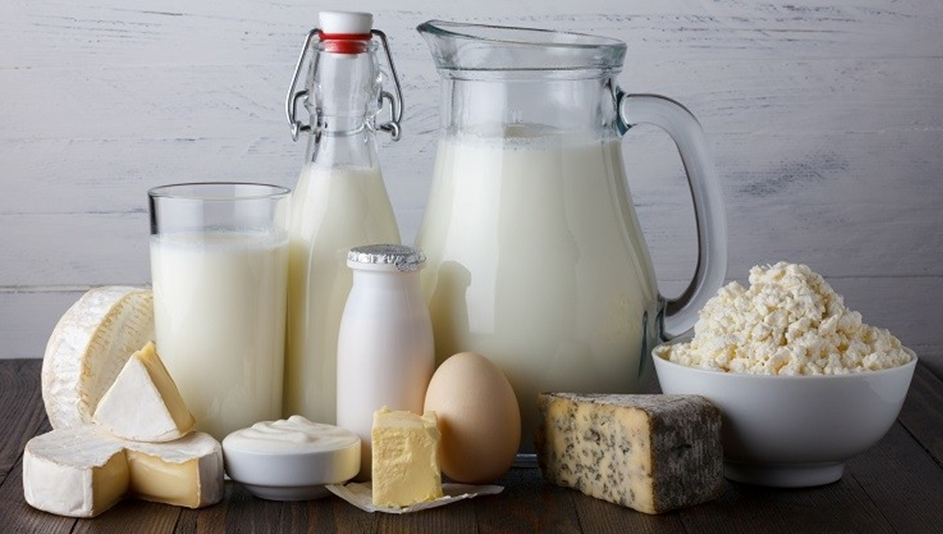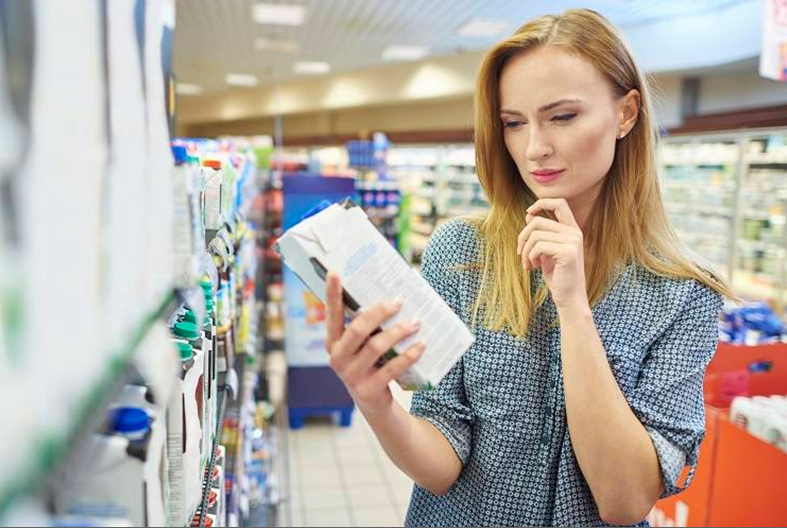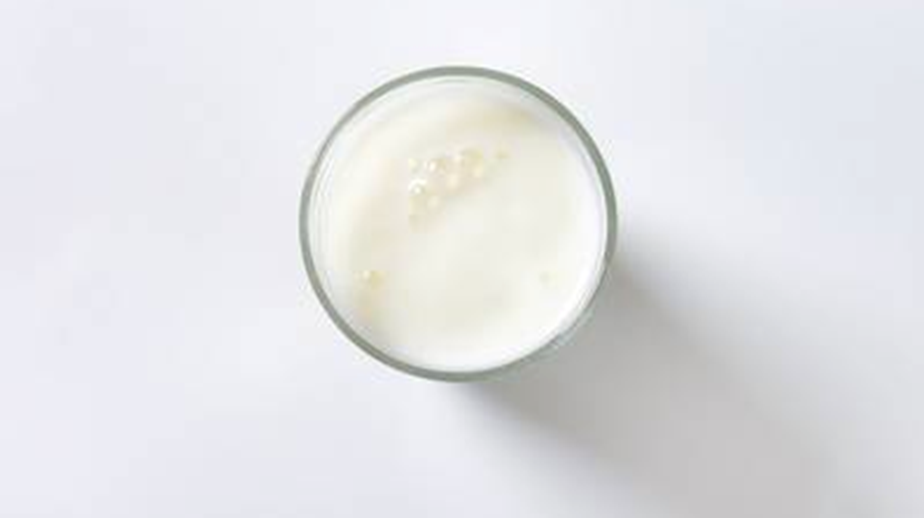Comexposium-SIAL Privacy Policy
Comexposium-SIAL Exhibition Co., Ltd. (hereinafter referred to as “Comexposium-SIAL”, “we”, “us” or “our”) is a company engaged in exhibition activities. We attach great importance to your privacy. The Comexposium-SIAL Privacy Policy (hereinafter referred to as the “Privacy Policy”) is applicable to your use of the websites and application possessed, and the online and offline services provided by Comexposium-SIAL. We hope this Privacy Policy can help you understand the details about our collecting, using, storing, sharing and transferring personal information and the way we provide you to access, update, delete and protect such information.
-
Hyperlinks and links to other websites can bring great convenience for you. However, after clicking some of the hyperlinks, you will leave our websites and may be led to other websites that are not under our control, to which this Privacy Policy will not apply. Please refer to the privacy policies of those websites.
-
To provide you with our services, we will collect information that you provide or that is generated during your use of our websites, application or services. If you don’t want your personal information to be used in the ways described herein, please stop using our websites, application or services. By continuing to use them, you will be deemed as having fully understood and agreed with the contents hereof.
I. Definitions
Personal Information: any kind of information recorded electronically or in other ways that can identify a specific natural person independently or in combination with other information, including a natural person’s name, birth date, identity document number, biometric information, address, phone number, email address, health information and location data, etc.
II. How We Collect and Use Your Information
During your use of our services, we will strictly observe relevant laws and regulations. We will collect and use the information that you voluntarily provide or that is generated while using the services in accordance with the relevant methods in Privacy Policy, in order to provide you with accurate and high-quality services.
When we collect your personal information, we will explain to you whether it is compulsory or optional for you to provide information and what will happen if you choose not to provide it. It will be difficult for us to contact you to confirm exhibition arrangements if you don’t provide all information. If exhibitors refuse to provide us with full information, we may not be able to get in touch with you. We may also require you to fill in our questionnaires for research purposes.
We will not collect the information of minors under 14 intentionally or target our services to them.
Our services may involve collection and use of your personal information in the following links:
1. Account registration
When you register a “visitor” account on our web page or live streaming, we need to collect your name, gender, identity document type and number, cellphone number, email address, position, company name, country, city and login password.
2. Completion of the Exhibition Participation Application Form by Enterprise Users
When you register as an “exhibitor” at the scene of our exhibition, we need to collect your name, company name in Chinese and English, your position, cellphone number, identity document type and number, and booth number in the exhibition.
3. Completion of the Visitor Registration Form at the Scene
When you register as an “visitor” at the scene of an exhibition, we need to collect your name, gender, identity card number, cellphone number, email address, position, company name, company website, country, city, address and postcode.
4. Completion of “Email Direct Marketing (EDM) Subscription””
When browsing our webpages, if you wish to open the email subscription function, we need to collect your name and email.
5. Others like publicly available sources and data providers which can verify or supplement the information we hold.
6. Our services may automatically collect information about how you and your devices interact with the services, including:
(1) Information of computers, devices and connection, such as IP address, browser type and version, operating system, unique device identifier and other technical identifiers, error reports and performance data;
(2) Use data, for example, functions that you use, settings that you choose, your URL click stream data including dates and timestamps as well as reference and exit pages, and web pages that you visit during the services; and/or
(3) Your location data, such as your location at activity scenes, for the purpose of the location-aware service.
7. To protect your health and safety, we may take precaution measures against diseases, possibly including temperature screening, tests and tracings, monitoring of visible symptoms or referring you to quarantine or medical staff for collection of health data, which is conducted in combination with relevant health authorities and, and we may disclose sensitive data about health, disability, religion, race or ethnicity in medical emergencies.
8. We also collect scenes and images taken by video tapes, cameras or closed-circuit televisions (CCTV) at activity scenes, offices and other exhibition-related places.
We will use your information in the following ways:
-To provide you with our services, activate your access and manage your use, including your attendance at activities; to fulfill the obligations arising from any contract signed between you and us and provide you with the information and services that you require from us; and
-To enhance and improve services and our other activities and services, and to develop new activities, services and experiences; and
-To provide you with customized contents and other personalized services to better suit your interests and regions; and
-To push the latest information about the industry and exhibitions and advertisements which you may be interested in. We will send you advertisements through various channels, including but not limited to calling, e-mailing, short message texting, materials mailing, faxing, social media etc. You may cancel your subscription through the instructions in the advertisements.
-To handle any service requests or other questions that you communicate with us; and
-To inform you of any changes, updates and other announcements about our information or services; and
-To manage our website or application and internal operations, including for troubleshooting, data analysis, testing, research, statistics and investigation purposes; and
-To determine use trends and develop data analysis, including for use in research, auditing, reporting and other business operations, which include determining the effectiveness of our promotional activities and evaluating our business performance; and
-To invite you to participate in user tests and surveys, and lottery, contests, audience voting and similar promotions or activities; and
-Contents that may contain your image, portrait or voice may be published and provided to our subscribers, visitors and exhibitors, or posted online through our website and social media channels for promotion and publicity purposes; and
-As part of our efforts to keep our website and applications secure.
If we use your personal information beyond the purpose that are explained to you at the time of collection and the reasonable range closely related thereto, we will inform you again to obtain your express consent before using your personal information.
Collection and use of your personal information does not need your prior consent under the following circumstances:
-Related to Comexposium-SIAL’s fulfillment of obligations stipulated in laws and regulations; and
-Related to Chinese national security or defense security; and
-Related to public security, public health or major public interests; and
-Related to crime investigation, prosecution and trials and enforcement of judgments etc.; and
-Out of consideration for safeguarding the life, property and other major rights and interests of you or other individuals, when however it is difficult to obtain the consent of the subject; and
-When you voluntarily disclose your personal information to the public; and
-When the information is necessary for concluding and performing contracts as per your requirement; and
-Collected from legitimate public sources, such as legal news coverage and government information announcements; and
-When it is necessary for maintaining the secure and stable operation of the products or services we provide, such as identification and correction of product or service malfunctions.
III. How We Share, Transfer and Publicly Disclose Your Personal Information
We will not share, transfer and publicly disclose your personal information to any company, organization or individual other than Comexposium-SIAL, except for:
-other parties that you have expressly consented to;
-our related companies, trade partners, and branches around the world (click here for a list), and some companies providing technical and customer services or shared service functions; and/or
-our service providers, suppliers, agents and representatives, including but not limited to payment processors, venue providers, site event contractors, customer support personnel, email service providers, IT service providers, mailing companies and transportation agents, who will represent us to process information that is necessary for providing services, completing transactions, meeting your requests or other aspects as per our instructions, on the premise of observing the Privacy Policy and any other appropriate confidentiality and security measures.
-other parties to which the disclosure is necessary in order to deal with complaints against infringement of intellectual property rights or other legitimate rights;
-other parties which bear confidentiality obligation to us.
Sharing, transfer and public disclosure of your personal information does not need your prior consent under the following circumstances:
-Related to Comexposium-SIAL’s fulfillment of obligations stipulated in laws and regulations; and
-Related to Chinese national security or defense security; and
-Related to public security, public health or major public interests; and
-Related to crime investigation, prosecution and trials and enforcement of judgments etc.; and
-Out of consideration for safeguarding the life, property and other major rights and interests of you or other individuals, when however it is difficult to obtain the consent of the subject; and
-When you voluntarily disclose your personal information to the public; and
-When the information is necessary for concluding and performing contracts as per your requirement; and
-Collected from legitimate public sources, such as legal news coverage and government information announcements; and
-When it is necessary for maintaining the secure and stable operation of the products or services we provide, such as identification and correction of product or service malfunctions.
Please be noted that according to the law, sharing and transferring anonymized personal information and ensuring that the data recipient cannot recover and re-identify the subject of personal information, do not belong to the sharing, transfer or public disclosing of personal information with external parties. We do not need to inform you and obtain your consent for the processing of such data.
IV. How We Use Small Text Files (Cookies) and Similar Technologies (for Online Users)
Cookies are usually used for more convenient transfer of data in order to provide more useful functions. Cookies are some data stored in computers. In order to improve our service quality, we use these devices to find out information about the use of our website and users’ preferences. We may share traffic information with advertisers, and record traffic, web pages visited and time on page. We do not collect any data that can be used to identify you. However, if you agree to register, we will provide the information link to you so that you can choose to get relevant information that you are interested in.
You can set the browser to refuse using Cookies or to have yourself notified when Cookies are sent.
Cookies are necessary for some functions of the website, for example, to keep uniformity for a period of time. If Cookies are not accepted, these functions cannot work normally.
V. How We Protect and Store Your Personal Information
In order to protect your personal information, we have taken appropriate security measures in line with industry standards to prevent it from unauthorized access, public disclosure, use, modification, damage or loss. We will try our best to ensure that only authorized personnel can access personal information.
We have taken measures to ensure that the personal information you provide is retained in the time period required by the purpose of collection only. After such period, your personal information will be deleted or anonymized, unless retaining is permitted by laws and regulations. When we have collected personal information based on your consent but have no other legal basis to continue to retain it, we will delete your personal information if you subsequently revoke your consent.
If your personal information is leaked in a security incident, we will inform you of the basic situation of the security incident of your personal information through website announcement, email, letter, phone call, etc. At the same time, we will also report the details of the personal information security incident as required by regulatory authorities.
It is particularly noteworthy that the Internet environment is not completely secure. Although we have the above security measures, there is no “perfect security measures” on the Internet. We will ensure the security of your information based on normal industry standards.
VI. How You Manage Your Personal Information
You are entitled to inquire, correct or supplement your personal information, and you can request us to delete it under the following circumstances:
-Our acts of processing personal information violate laws and regulations; or
-We process your personal information without your express consent; or
-Our acts of processing personal information constitute severe breach of our agreements with you; or
-You no longer use our products or services; or
We no longer provide products or services to you.
Due to applicable laws and security technologies, we may not be able to delete your information immediately from the backup system, but we will store your personal information securely and isolate it from any further information processing steps, until the backup can be deleted or anonymization is achieved.
If you have any questions about your personal information or wish to inquire, obtain, change or delete any of your personal information, please contact us via the contact information stated in How to Contact Us. We will provide you with information about how you can obtain, browse and change your personal information.
To safeguard security, you may need to provide written requests or prove your identify in other ways. We may require an authentication of your identify first before processing your requests. And we may decline your requests which are in regard to information not directly related to your identify or gratuitously repeated information, or needs too many technical means (for example, need to develop a new system or change prevailing practices fundamentally), or brings risks to the legitimate rights and interests of others, or unrealistic requests.
We will not be able to respond to your requests under the following circumstances:
-Related to Comexposium-SIAL’s fulfillment of obligations stipulated in laws and regulations; and
-Related to Chinese national security or defense security; and
-Related to public security, public health or major public interests; and
-Related to crime investigation, prosecution and trials and enforcement of judgments etc.; and
-There is sufficient evidence to prove that the subject of personal information has subjective malice or abuse of rights; and
-Out of consideration for safeguarding the life, property and other major rights and interests of you or other individuals, when however it is difficult to obtain the consent of the subject; and
-Responding to your requests will severely damage your legitimate rights and interests or those of other individuals or organizations; and
-Related to the business secrets of Comexposium-SIAL.
VII. Storage of Your Information
We will store your personal information in the Chinese mainland (“Storage Region”), but you have expressly agreed hereby that to the extent permitted by law, your information that we collect can be transferred and stored in places outside the Storage Region, and it is also possible that such information will be processed by employees outside the Storage Region who work for Comexposium-SIAL and its related companies.
VIII. How This Privacy Policy Will Be Updated
Our Privacy Policy may be updated from time to time, and any changes of the Privacy Policy will be announced on our website. Without your express consent, we will not reduce or restrict the rights that you may enjoy in accordance with this Privacy Policy.
IX. How to Contact Us
If you have any questions, opinions or suggestions about the Privacy Policy and/or data processing, you may contact our data protection officer via email (info@sialchina.cn).





